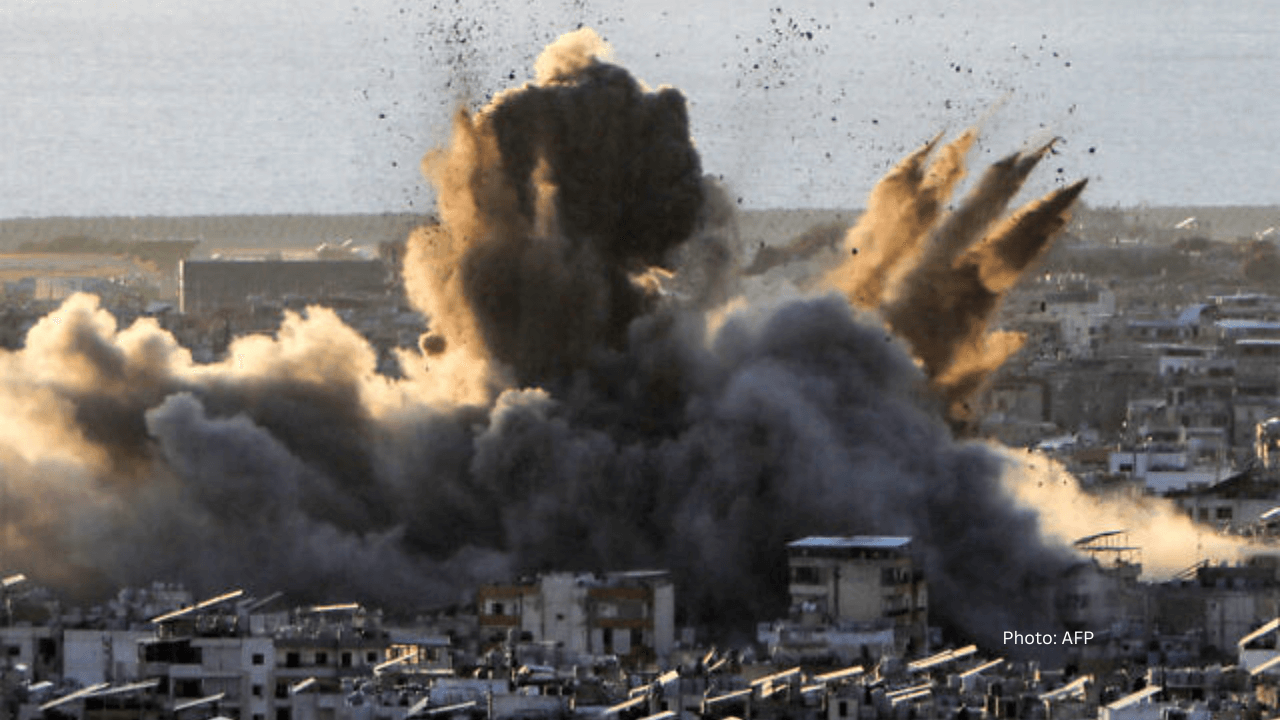Striking the Heart: Waning the Strength of Hezbollah?
Nuzhat Tabassum | 04 September 2024
Israel yet again strikes on top commanders. Taking the Middle East to the brink of regional war again. On September 27, Hezbollah leader Hassan Nasrallah was killed in Beirut, Lebanon in an Israeli air strike codenamed New Order. He was a charismatic yet fearsome leader who wielded power beyond Lebanon. Supported by Iran, Hezbollah is a Shiite group that Nasrallah transformed into a potent political force, a network of social services as well as the most heavily armed non-state group in the world, thirty-two years ago from covert terrorist cells. His death is not only going to shake Hezbollah and the Middle East but could have negative implications for the USA and Israel. However, in reality, Nasrallah's death is a short-term tactical win for Israel. Even when Israel assassinated Abbas al-Musawi, Hezbollah’s co-founder and Secretary-General in 1992, they thought that was the end of Hezbollah. But Hezbollah did become stronger than in 1992 under the leadership of Nasrallah. His death might weaken the group but it will not eliminate it or the threat it poses to Israel.
Israel’s reason for assassinating Hezbollah leaders is based on two reasons. Firstly, the group depends on the hierarchy to function, and the group will become weak without a head. Secondly, by killing them, it will act as an effective deterrence. But yet, Hezbollah’s rockets have not stopped even after the death of Nasrallah. Israel wants to demoralize the Hezbollah fighters. Additionally, Israel is making it quite evident by these assaults that it will no longer tolerate tit-for-tat attacks on its northern border. Israel wholeheartedly believes that to defeat Hezbollah; they need to bomb Lebanon indiscriminately. However, they are in a delusion; rather it might increase the threat to Israel. Hezbollah might exercise strategic patience.
Nasrallah was the most iconic Arab leader. His murder represents an open conflict between Israel and Iran for Lebanon's and the Levant's destiny. This is probably not the conclusion, but rather the beginning of a conflict. Locally, among the Shia population in Lebanon, Nasrallah was also the most influential leader. His murder leaves a significant gap, and it begs important concerns about the community's future under Lebanon's antiquated sectarian structure. It is probably going to deepen political division and add to the vulnerability of a nation with a feeble central authority, which will fuel further instability. The breakdown of Hezbollah threatens to further impoverish thousands of families and make the economic situation more vulnerable. There is fear that Hezbollah's political rivals would try to take advantage of the situation, further escalating sectarian tensions at a time when the Shia population in the nation is bearing the brunt of Israel's assault. The death of Nasrallah may offer a way to resolve the presidential dispute that has stalled the nation's government for almost two years but it depends on the political parties how they will respond.
It is not clear who will take over the position of Nasrallah now. There will be pressure on the incoming leader to employ Hezbollah's weapons to a far greater extent. The US saw that in both Iraq and Afghanistan, even after killing top leaders, these types of groups are designed in such a way that there will always be someone to take over. After the assassination of Osama bin Laden, al-Qaeda didn't perish. Rather it became strong. A similar thing is going to happen in the case of Hezbollah. The group may become more radical, and dangerous, mostly to Israel. Hezbollah could be even less inclined to negotiate with Israel than it was before Nasrallah's assassination if Israel's invasion of Lebanon turns into a lengthy conflict.
Israel, for a long time, wanted to drag Hezbollah and Iran into an all-out war and they might be able to do so. Since then, the US has already doubled its support for Israel. However, if Israel thinks that the situation has calmed down, then that is wrong. Iran has threatened to retaliate against Israel. If Hezbollah truly becomes weak, Iran might turn to Houthis in Yemen to continue its operation.
Nuzhat Tabassum is a Program Assistant at CGS
Note: Views in this article are author’s own and do not necessarily reflect CGS policy.
